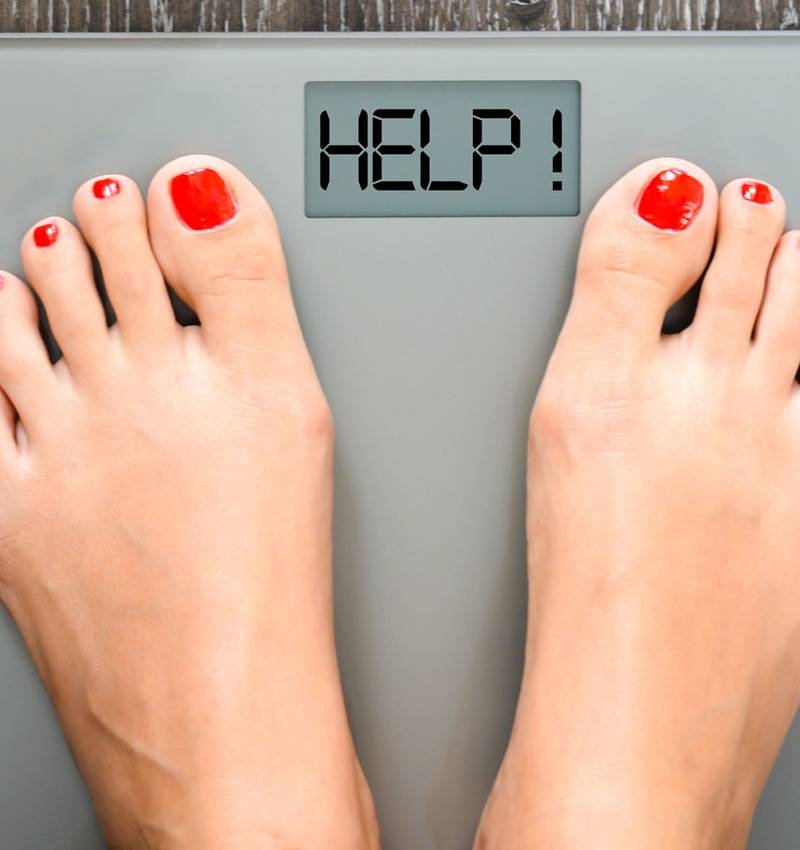Stepping regularly on the scale is not a sign of vanity or an obsession, but a necessary act to stay healthy.
As a form of prevention it is not as frightening as going to the dentist, so the suggestion is to weigh oneself regularly (and act accordingly, otherwise the act itself is not enough!)
The best is to monitor one's weight weekly.
But before considering how and why, let's first answer the question: how does one get overweight?
There are those who are overweight since infancy or adolescence because they inherited an incorrect lifestyle from their parents, also overweight.
The majority of people, however, gain weight at the rate of one kg a year after 20 or 30 years of age: this happens because one continues to eat as one did before, but is no longer as active as in the past.
Many women during pregnancy fail to follow dietary indications and find themselves with 15 or 20 kilograms extra instead of the expected 9 or 10. Finally, other recorded cases include athletes who stop sports activities, but do not change eating habits, which means that their body stores the energy it no longer consumes.
In all these cases all one has to do is re-establish one's eating habits and physical activity to regain the ideal weight.
The ideal weight is the standard ratio between height and weight for a person's good health.
One of the most used methods to identify one's ideal weight is the BMI (Body Mass Index) that is calculated dividing the weight in kilograms by the height expressed in meters squared.
An example: 76 kg : 1.80 m: 1.80 m = BMI 23.4
The BMI is an index that has to be considered as such; in the case of a very muscular build (such as body-builders) it is not precise, and the same goes for children where it is necessary to calculate percentages to determine if a child is at an ideal weight or obese. For adults - male or female - the ideal weight is between 18.6 and 24.9, from 25 and 29.9 it is overweight, past 30 there are various levels of obesity: obese up to 34.9, severe from 35 to 39.9, and above 40 morbidly obese.
Weight problems occur also for the opposite reason, as signs of nutritional deficiencies: when the BMI is less than 16 it indicates severe thinness, while up to 18.5 it is considered underweight. Having calculated the BMI, if one turns out to be overweight or obese, before making a plan to lose weight it is necessary to speak with one's GP: do-it-yourself diets and forced physical activity are not recommended.
Obesity is an illness and being too far from one's ideal weight can have serious psychological repercussions (personality changes, low self-esteem, social isolation, etc.) Weighing yourself is a form of prevention, but it is important not to let it become an obsession: for example, weighing oneself every day is useless because in so doing what is revealed are the changes in water retention, more or less significant, due to reduction in food or increased sweating. The amount of water in the organism, contained in the intestine, together with physical activity carried out are significant variables when it comes to the weight of a person.
The suggestion is to weigh oneself once a week, on the same day, at the same time, in the morning before breakfast. If one has eaten a particularly salty meal, for example a pizza, it is better to weigh oneself not before 48 hours. One should get onto the scales naked or clothed in the same manner with light undergarments.
Today Body Composition scales, those that measure fat mass are no longer just a professional tool, but while it has become easy to find one on the market, on the other hand it has become just as easy to buy one that is too unreliable: some have values that change between consecutive checks made at the same time.
The rules to maintain a healthy weight?
> Know your energy needs: do not introduce more calories than needed.
> Careful with empty calories in commercial beverages that are often very sugary.
> Follow the Mediterranean diet, rich with fruit and vegetables, in addition to trying to eat in a balanced way between macro- and micronutrients.
> Have realistic goals: it is not possible to lose weight in a single week.
> Carry out aerobic physical activity three-four times a week.
> Drink enough water, i.e. 1.5 or two liters a day.
> Monitor your progress by weighing yourself once a week.
The contents of this article are in accordance with the parameters set out by the European Food Safety Authority - EFSA.







